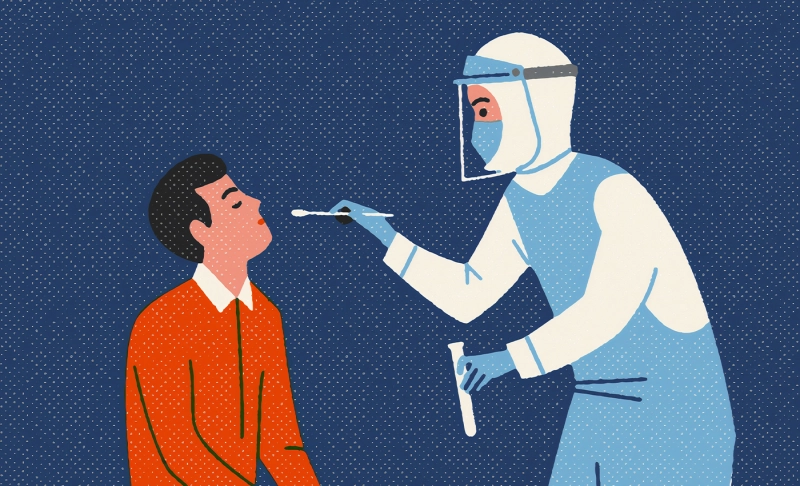By: Umme Kulsum
February 8 2022
False: Nasal swabs used for COVID-19 tests contain dangerous levels of ethylene oxide, a cancer-causing substance.

The Verdict False
Only a small amount of ethylene oxide is used to sterilize nasal swabs. This is not high enough to cause cancer.
Only a small amount of ethylene oxide is used to sterilize nasal swabs. This is not high enough to cause cancer. Ethylene Oxide (EtO) is a colorless gas. It is an Environmental Protection Agency-registered substance used to sterilize medical equipment. Herbs and whole spices are also treated with EtO. While sterilizing goods, a uses a very small amount of ethylene oxide is used and is not dangerous to public health. However, overexposure to this gas can be dangerous. According to the U.S. Food and Drug Administration (FDA), for many medical devices, ethylene oxide sterilization is the only method that effectively sterilizes equipment and does not damage the device during the sterilization process. The U.K. Medicines and Healthcare products Regulatory Agency stated that the swabs used in the lateral flow test kits will be sterilized using either ethylene oxide or radiation, as labeled on the packaging by the manufacturer. There is an allowable limit for using ethylene oxide for sterilization. The limit of residual ethylene oxide is ISO 10993-7:2008, as set by the international standard. Additionally, the manufacturer must document the sterilization process. An independent third-party body reviews this documentation before manufacturing the device. Only a very small amount of ethylene oxide is used to sterilize nasal swabs, to ensure they are hygienic. This amount used is not high enough to cause cancer. Hence, medical devices sterilized using ethylene oxide, including nasal swabs used for COVID-19 testing, are completely safe. The COVID-19 pandemic has given rise to a lot of potentially dangerous misinformation. For reliable advice on COVID-19, including symptoms, prevention, and available treatment, please refer to the World Health Organization or your national healthcare authority.


